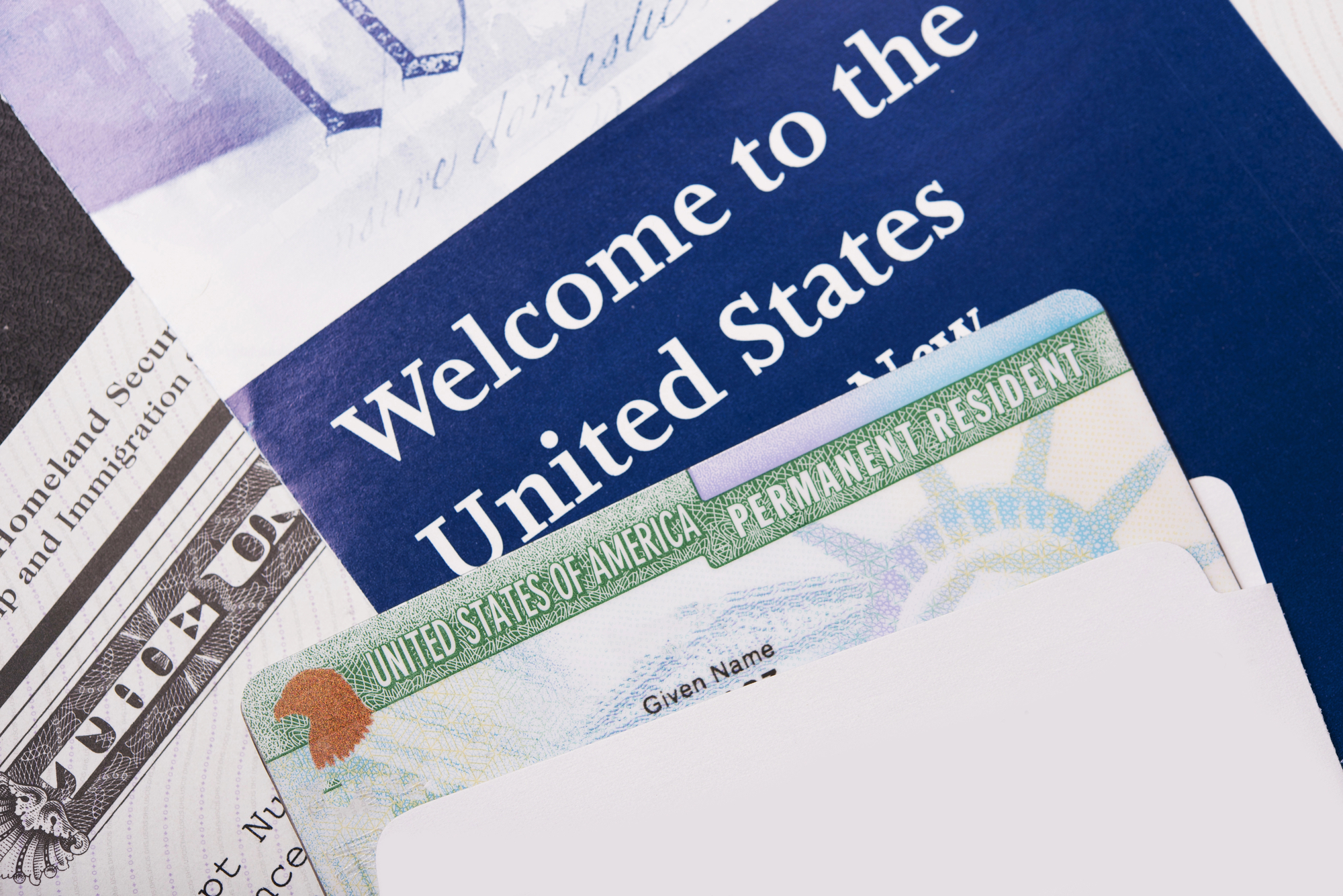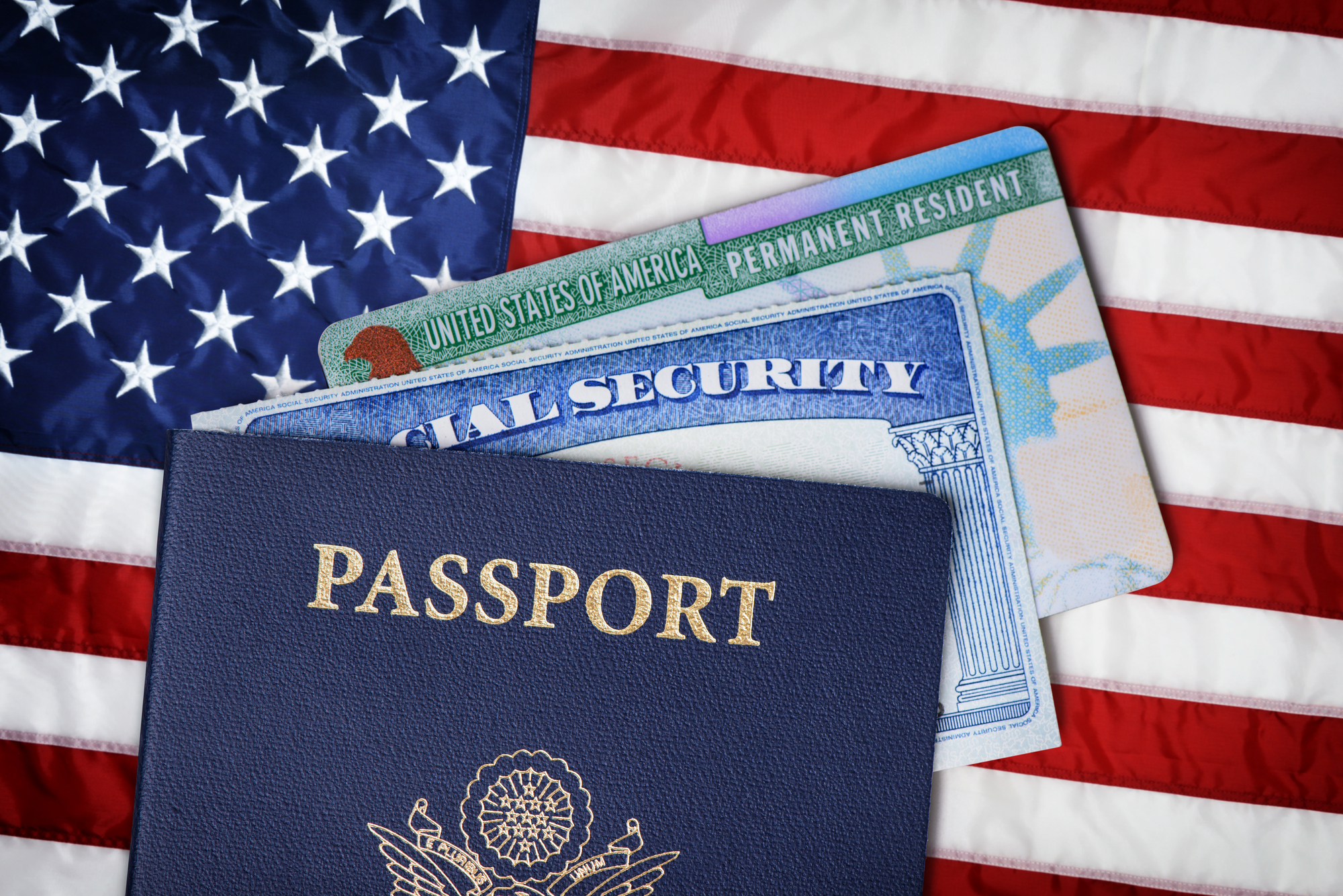What Are Grounds for Inadmissibility in Immigration Cases?
If you commit certain acts or have certain health issues, you may not be able to enter or stay in the United States of America legally. This is called inadmissibility.
You may also be found legally inadmissible to the US if the government believes you threaten US National Security, public safety, or public health. The United States government uses its rules of inadmissibility to protect existing citizens and legal permanent residents. Enforcement of inadmissibility is handled by the US Department of State and the US Department of Homeland Security. These government agencies are tasked with preventing immigration, which could be harmful to the United States, including denying applicants with a history of serious crimes, previous immigration violations, terrorism, or contagious medical diseases. If a hopeful immigrant is deemed inadmissible, they will be barred from obtaining legal immigration status, entering the US, or adjusting their status.
Common grounds for inadmissibility include the following:
- Abusing student visas
- Addiction or abuse of a controlled substance
- Failure to attend immigration court proceedings
- Illegally entering the country
- Inadmissible due to criminal history concerns, such as drug offenses, crimes involving moral turpitude, multiple criminal convictions, and more
- Inadmissibility due to health concerns, such as lack of necessary vaccinations, having a communicable disease, and physical or mental disorders
- Inadmissibility due to public charge concerns, where the government believes that the immigrant will heavily rely upon public benefits to survive in the country
- Misrepresentation or fraud deeming an immigrant inadmissible
- National security concerns, such as a connection to any anti-American or violent groups
- Participation in international child kidnappings or being directly related to an abductor
- Prior immigration problems, such as having been previously deported from the United States of America
- Renouncing your US citizenship to avoid taxation
- Smuggling or aiding smugglers
- Voting illegally
What Are Medical Grounds for Inadmissibility to the United States?
Any hopeful immigrant must clear a comprehensive medical immigration examination wherein an appointed civil surgeon does all the necessary elements of the exam. In addition to mental and physical checkups, the immigrant must have complete vaccination records to ensure that they are healthy and pose no danger to public safety.
The following diseases and conditions are specifically designated by Health and Human Services as vaccine-preventable: hepatitis B, influenza type B, mumps, measles, rubella, polio, tetanus, and more.
The US government follows both rules implemented by the World Health Organization (WHO) and goes beyond those recommendations to identify additional diseases.
The following diseases and conditions have been found to pose a significant risk to public health and safety, thus designating them of public health significance and deeming immigrants who have these conditions to be inadmissible:
- Active tuberculosis
- Cholera
- Gonorrhea
- Infectious leprosy
- Infectious syphilis
- SARS
- Smallpox
- Yellow fever
- And more
The US Center for Disease Control (CDC) keeps a list of diseases that prevent applicants from entering the US or adjusting their status, and this list continues to grow by the year.
Having a physical or mental disorder that causes an individual to behave in ways that could be harmful to public welfare, safety, or public property could make them inadmissible to the United States. Harmful behavior may include any psychological or physical injury to the applicant, a threat to health or safety, or damage to major property. Having any mental illness is not grounds enough to be inadmissible; rather, the mental illness must be associated with a serious harmful behavior.
How Will Your Health Issues Be Discovered?
Immigration officials must review several pieces of information when determining whether to deem an applicant inadmissible due to health-related issues.
Immigration officials will read and review your answers to questions about your health in your application forms. You may be tempted to downplay or dismiss some of the conditions in your immigration application, but we must advise you not to do so. Any attempts to mischaracterize your health could be considered misrepresentation or fraud.
Every immigrant, green card applicant, and some temporary visitors must undergo an immigration medical examination. During this exam, your health issues may be discovered.
Any other information provided during immigration interviews or inspections and in existing criminal or court records could also be used to discover health-related inadmissibility.
What Are Common Misconceptions About Medical Inadmissibility?
Many immigrants and their families have some misconceptions about medical inadmissibility in the immigration process.
Some of the common misconceptions about medical inadmissibility include the following:
- Full disclosure of medical conditions will lead to inadmissibility: not always true. While many immigrants believe that having any medical condition will lead to inadmissibility, this is not the case. Only certain diseases and conditions that could significantly burden the state or endanger the country’s residents will result in the applicant being deemed inadmissible
- Health issues and admissibility apply to all types of visas: this is not so. Vaccination requirements and medical exams vary depending on the immigration benefits that the applicant is seeking
- There are no waivers: but there are! There are several waiver options, including family-based immigration, to help applicants pursue their dreams of coming to the United States. Contact our Hoffman Estates-based law firm to schedule your free initial consultation today
- You will be automatically rejected due to a medical history: everyone has some sort of medical issue. Many candidates for immigration believe that their medical records could be used against them. But you must remain honest about your medical conditions, as any misrepresentation of your health issues could be deemed fraud. It is highly likely that, provided you do not have one of the disqualifying conditions, your medical history will not result in you being barred from the country
Is Anyone Exempt from Needing to Produce Proof of Vaccines?
Refugee, asylum, and VAWA applicants face more lenient admissibility standards. When filing your application for immigration, you will not face the same strict standards that others may face.
For example, VAWA petitioners may have certain immigration violations that could be forgiven, such as unlawful presence, illegal entry, or misrepresentation of immigration status. Because of the harsh life challenges that VAWA applicants face, the US government may be understanding.
Asylees do not face inadmissibility grounds at the time that they receive their asylum status.
Certain legally adopted children may be exempt from the vaccine requirements.
Are Alcoholism or Drug Addiction Considered Grounds for Inadmissibility?
In addition to contagious diseases and medical conditions that render an individual a threat to public health and safety, a foreign national may also be denied entry into the US if they suffer from drug addiction or abuse or alcohol abuse. These grounds of inadmissibility are based on the idea that the applicant may pose a financial burden on the government and, more importantly, pose a safety risk to the public at large.
Depending on the severity of the alcohol or drug abuse, these issues could be labeled as mental disorders with harmful behaviors, thus resulting in inadmissibility to the US.
Once a foreign-born national is officially classified as a drug abuser, they will be inadmissible to the US. There are no waivers for inadmissibility based on drug abuse.
It is essential for applicants with a history of drug or alcohol abuse to seek professional help and rehabilitation.
When is it Possible to Obtain a Waiver for a Health Concern?
Even if you are deemed inadmissible, a successful waiver application could still allow you to gain permission to enter and legally reside in the United States.
Successful waiver applications will allow United States immigration officials to overlook certain inadmissibility concerns, including health issues. All waivers are discretionary, meaning that a US immigration official has the authority to review your immigration case and use their professional judgment to determine the outcome. Based on this discretion, the immigration official has the right to either deny your application or approve your application, even if you potentially qualify for a waiver.
Obtaining a waiver of inadmissibility is not guaranteed. The decision to grant a waiver for an immigration case is usually made at the discretion of immigration authorities, and various factors will be considered on a case-by-case basis, including the applicant’s ties to the US, their family situation, the severity of their inadmissibility, and more.
To learn more about how and when to get a waiver of inadmissibility, please contact our Schaumburg, Illinois, legal team to schedule a free case review today.
How to Apply for a Waiver?
Different processes and forms are required for applying for waivers depending on the immigration program you are involved in and the grounds for inadmissibility.
To apply for a waiver of communicable disease, you will need a qualifying family member, such as a legal permanent resident or a U.S. citizen spouse, parent, unmarried child, or adopted minor child. By submitting your documentation in your waiver application, you must show that the qualifying relative will suffer extreme hardship if you are not legally permitted to enter and stay within the United States.
If you object based on religious practices or moral reasons to receiving any required vaccination, you may apply for a waiver of vaccination requirements. Regardless of whether you wish to go without receiving the necessary vaccines, you must undergo a thorough medical exam.
Those found inadmissible due to mental or physical conditions can also apply for a waiver. In your application, you must establish that you are not at risk of causing any harmful behavior to property, safety, or the welfare of other people. This is usually accomplished by submitting a doctor’s report detailing your mental or physical condition.
It is highly recommended that you retain professional legal representation from experienced immigration attorneys. Please contact our Illinois Law Offices to schedule your free, no-obligation case evaluation today.
Contact Our Schaumburg Law Firm for a Free Consultation Today
If you or a family member have been deemed inadmissible due to health issues or medical grounds, you must understand that this needn’t be the end of the road. There are legal options available to you and your family members seeking to immigrate to the United States legally, even if you have been initially denied entry due to medical concerns.
Our Schaumburg legal team has extensive experience representing clients in the Chicagoland area in a variety of immigration law cases. To learn more about our legal services and how we may assist you during this difficult scenario, please contact our Schaumburg, IL, law office to schedule your free phone consultation today.
You can reach us at 224-328-1900.




